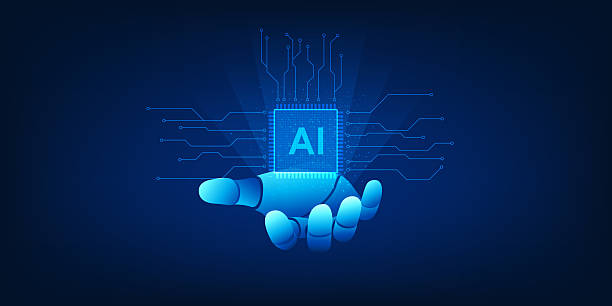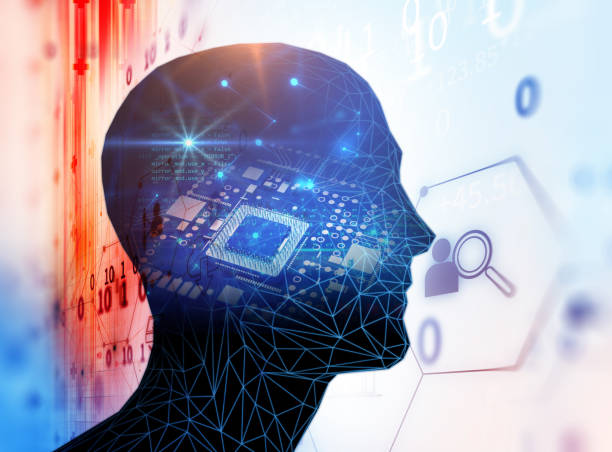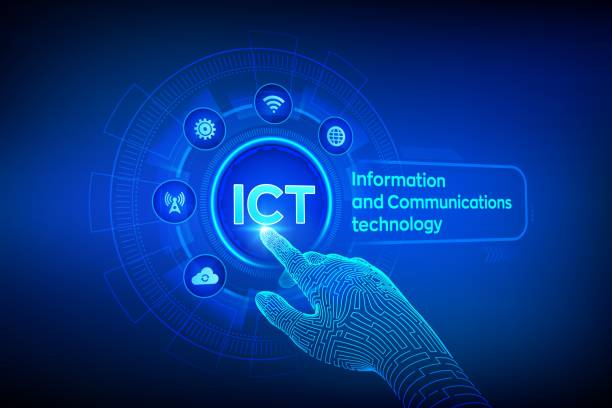What is Artificial Intelligence and What Impact Does it Have on the Job Market?
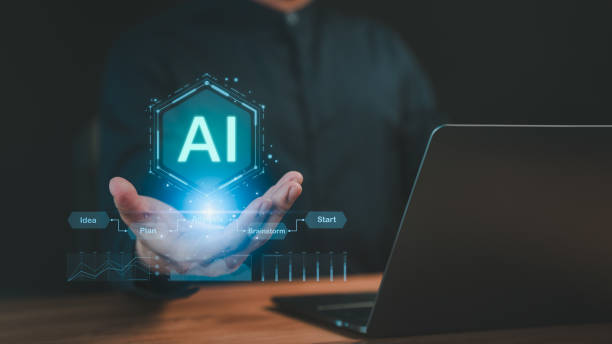
#Artificial_Intelligence (AI) is rapidly becoming a transformative force in various arenas, especially in the job market.
AI, briefly defined as the ability of machines to mimic human intelligence, encompasses a wide range of technologies, including machine learning, natural language processing (NLP), and computer vision.
These technologies enable machines to perform tasks that traditionally require human intelligence, such as pattern recognition, problem-solving, and decision-making.
These capabilities have far-reaching effects on various industries and businesses.
The future of AI employment has now become an important and vital discussion.
One of the biggest impacts of AI on the job market is automation.
AI can automate many repetitive and rule-based tasks, leading to increased productivity and reduced costs for companies.
However, automation has also raised concerns about job displacement, as some jobs may become obsolete due to AI’s ability to perform tasks more efficiently.
The impact of AI is not only limited to automation.
AI is also creating new job opportunities.
With the development and deployment of AI systems, the need for specialists who can design, develop, implement, and maintain these systems is increasing.
Roles such as data scientists, machine learning engineers, and AI specialists are in high demand and are expected to continue to grow in the coming years.
In addition, AI can enhance human performance and help individuals work more efficiently and effectively.
AI-powered tools can provide insights and recommendations, automate decision-making processes, and streamline administrative tasks, allowing individuals to focus on more strategic and creative activities.
This collaboration between humans and AI can lead to increased productivity, improved quality, and innovation.
Is your company’s website as professional and trustworthy as it should be? Create an online presence that reflects your credibility and attracts more customers with professional corporate website design by Rasaweb.
✅ Build a powerful and professional image of your brand
✅ Convert visitors into real customers
⚡ Get a free consultation now!
Jobs at Risk of Automation with AI
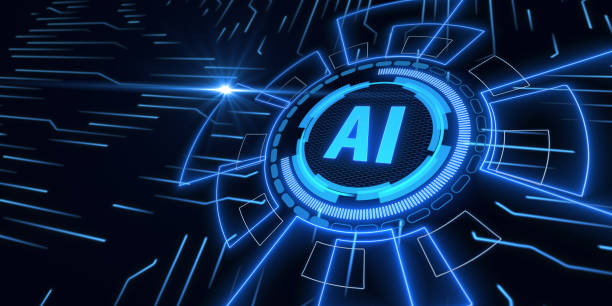
The future of AI employment is considered a threat for some jobs.
AI can potentially impact a wide range of jobs in various sectors, however, some jobs are more at risk of automation due to the nature of the tasks they involve.
Jobs that involve repetitive, rule-based, and standardizable tasks are more likely to be automated with AI.
This is because AI excels at performing these types of tasks efficiently and consistently, without the need for human intervention.
For example, data entry, data processing, and customer support jobs often involve repetitive tasks that can be automated by AI systems.
AI can automatically enter data into systems, generate reports, and answer frequently asked customer questions, reducing the need for human employees to perform these tasks.
Manufacturing and transportation jobs are also at risk of automation.
AI-powered robots can perform tasks on assembly lines, warehouses, and distribution centers, while self-driving vehicles can transport goods and materials without human drivers.
This automation can lead to increased productivity, reduced costs, and improved safety, but it can also lead to job losses for workers who perform these tasks.
In addition, jobs that involve data analysis and decision-making are also increasingly at risk of automation.
AI-powered algorithms can analyze large volumes of data quickly and accurately, providing insights and recommendations that can help make more informed decisions.
This can affect jobs such as financial analysts, marketing professionals, and human resource managers, as AI can automate some of their tasks and reduce the need for human employees.
However, it is important to note that automation does not necessarily lead to job losses.
In many cases, AI can enhance human performance and help individuals work more efficiently and effectively.
By automating repetitive and time-consuming tasks, AI can free individuals to focus on more strategic and creative activities, such as problem-solving, decision-making, and interpersonal interactions.
This collaboration between humans and AI can lead to increased productivity, improved quality, and innovation.
New Jobs Created by AI

While AI can potentially automate some jobs, it also creates new job opportunities.
With the development and deployment of AI systems, the need for specialists who can design, develop, implement, and maintain these systems is increasing.
This has led to an increased demand for roles such as data scientists, machine learning engineers, and AI specialists.
Data scientists are responsible for collecting, analyzing, and interpreting large volumes of data to extract insights and patterns that can be used to improve decision-making and business outcomes.
They use machine learning algorithms, statistical models, and other techniques to identify trends, predict outcomes, and recommend actions.
Data scientists are in demand in a wide range of industries, including healthcare, finance, marketing, and technology.
Machine learning engineers are responsible for developing and implementing machine learning algorithms and models.
They work with data scientists to train models, optimize them, and deploy them in various applications and systems.
Machine learning engineers should be skilled in mathematics, statistics, and computer science, as well as have a deep understanding of machine learning algorithms and techniques.
The future of AI employment depends on the development of these individuals.
AI specialists are responsible for designing, developing, and implementing AI systems that can perform various tasks, such as understanding natural language, recognizing images, and making decisions.
They use various AI algorithms and techniques to create systems that can operate automatically, interact with humans, and learn from data.
AI specialists are in demand in industries such as automotive, healthcare, finance, and retail.
In addition to these technical roles, AI also creates opportunities for new jobs in non-technical fields.
For example, there is a need for specialists who can explain AI concepts to non-technical audiences, manage ethical and social issues related to AI, and develop AI-related policies and regulations.
These roles require strong communication skills, critical thinking, and a deep understanding of AI and its applications.
| Job Title | Description |
|---|---|
| Data Scientist | Responsible for collecting, analyzing, and interpreting large volumes of data |
| Machine Learning Engineer | Responsible for developing and implementing machine learning algorithms and models |
| AI Specialist | Responsible for designing, developing, and implementing AI systems |
Skills Needed to Succeed in the Future of AI Employment
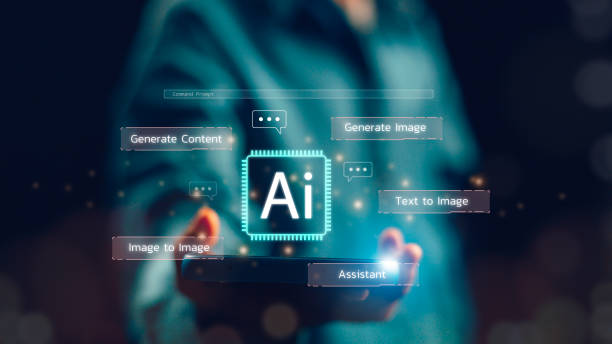
To succeed in the future of AI employment, individuals must develop a combination of technical and non-technical skills.
While technical skills are essential for designing, developing, and implementing AI systems, non-technical skills are equally important for understanding and solving complex problems, collaborating effectively, and adapting to changing circumstances.
In terms of technical skills, strong knowledge in computer science, mathematics, and statistics is essential.
Individuals should be familiar with machine learning algorithms and techniques, programming languages, and data science tools.
They should also have a deep understanding of software engineering principles and best practices.
In addition to technical skills, individuals must also develop non-technical skills such as critical thinking, problem-solving, communication, and collaboration.
Critical thinking is essential for evaluating information, identifying biases, and making informed decisions.
Problem-solving is needed to identify and solve complex problems, develop innovative solutions, and implement them effectively.
Communication skills are essential for communicating effectively with colleagues, stakeholders, and customers.
Individuals should be able to explain technical concepts to non-technical audiences, present their ideas clearly and concisely, and actively listen to others.
Collaboration skills are essential for working effectively in teams, sharing knowledge, and achieving common goals.
Individuals should be able to collaborate in a diverse and interdisciplinary environment, respect different perspectives, and compromise with each other to achieve success.
In addition to these skills, individuals must have a willingness to learn continuously and adapt to changing circumstances.
The field of AI is rapidly evolving, and new technologies and techniques are constantly emerging.
To stay competitive, individuals must be eager to learn new skills, stay up-to-date with the latest developments, and adapt to changing environments.
In summary, the future of AI employment requires a combination of technical and non-technical skills.
Individuals who can develop these skills will be better equipped to succeed in the AI job market and contribute to the development and deployment of AI systems.
The future of AI employment requires individuals with mixed skills.
Tired of losing customers due to poor online store design? Solve this problem forever with Rasaweb!
✅ Increase sales and visitor-to-customer conversion rate
✅ Smooth and engaging user experience for your customers⚡ Get a free consultation
Education and Training for AI Jobs
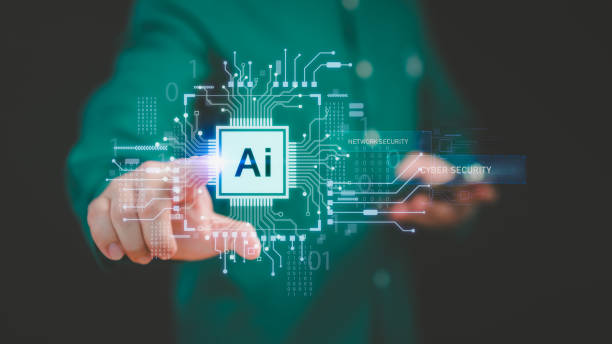
Education and training play a vital role in preparing individuals for future jobs in AI.
As AI becomes increasingly integrated into various industries, there is a need for skilled individuals who can design, develop, implement, and manage AI systems.
Educational systems should address this need and provide students with the necessary knowledge and skills to succeed in the AI job market.
One way education and training can prepare individuals for AI jobs is to provide relevant curricula and courses.
Schools and universities should offer courses in computer science, mathematics, statistics, and machine learning.
These courses should cover basic concepts and principles, as well as provide practical experiences and opportunities for students to apply their knowledge in real-world scenarios.
In addition to traditional courses, educational systems should also explore new ways of learning and developing skills.
For example, coding boot camps and online courses can offer intensive and affordable ways to learn AI skills.
These programs often focus on practical skills and are designed to help students enter the job market as quickly as possible.
The future of AI employment is bright if appropriate training is provided.
Educational systems should also focus on developing non-technical skills that are essential for AI jobs.
These skills include critical thinking, problem-solving, communication, and collaboration.
Students should be encouraged to participate in activities that promote these skills, such as research projects, case studies, and simulations.
In addition, educational systems should collaborate with industry to ensure that students have the skills and knowledge that employers need.
This can be done through internships, partnerships, and guest lectures.
By collaborating with industry, educational systems can stay up-to-date with the latest trends and technologies and provide students with valuable opportunities for learning and networking.
In summary, education and training play a vital role in preparing individuals for future jobs in AI.
Educational systems should provide relevant curricula and courses, explore new ways of learning and developing skills, focus on developing non-technical skills, and collaborate with industry to ensure that students have the skills and knowledge that employers need.
By investing in education and training, we can ensure that our workforce is ready to meet the challenges and opportunities of AI in the future.
The future of AI employment depends on the education system.
Impact of AI on Various Industries
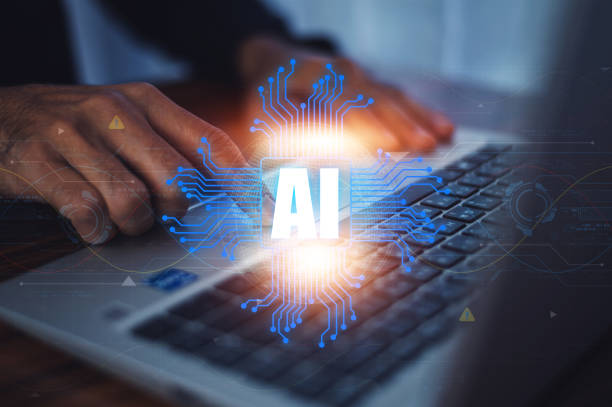
Artificial intelligence (AI) is rapidly becoming a transformative technology in various industries, changing the way companies operate, make decisions, and interact with customers.
The impact of AI is widespread, ranging from automating tasks to enabling new products and services.
In this section, we explore how AI is impacting various industries.
#Healthcare is one of the industries with the most potential to benefit from AI.
AI can be used to improve diagnostics, develop personalized treatment plans, discover drugs, and optimize clinical operations.
AI-powered algorithms can analyze medical images more accurately than human experts, enabling early diagnosis and more effective treatment of diseases.
AI can also be used to develop personalized treatment plans based on individual genetic profiles and lifestyle factors.
This approach can lead to improved treatment outcomes and reduced side effects.
The **future of AI employment** is very broad in the field of health care.
#Finance is another industry where AI is having a significant impact.
AI can be used to detect fraud, assess risk, develop trading strategies, and improve customer service.
AI-powered algorithms can identify patterns and anomalies in financial data, helping banks and other financial institutions prevent fraudulent activities.
AI can also be used to assess risk and make more informed decisions about credit and investment.
In addition, AI can be used to develop trading strategies that are optimized based on market data and trends.
#Retail is another industry where AI is making changes.
AI can be used to personalize customer experiences, optimize supply chain management, and improve marketing and sales.
AI-powered algorithms can analyze customer data to understand preferences and behaviors, enabling retailers to offer personalized recommendations and offers.
AI can also be used to optimize supply chain management by predicting demand, improving inventory management, and reducing costs.
In addition, AI can be used to improve marketing and sales by automating campaigns, targeting the right customers, and optimizing pricing. The future of AI employment depends on understanding its impact on various industries.
Challenges and Potential Risks of AI in the Job Market
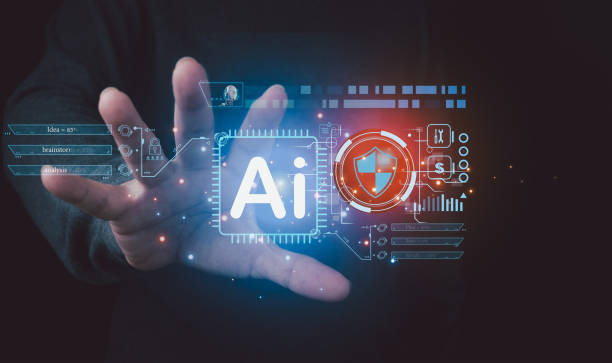
While AI offers many benefits to the job market, it is important to be aware of the challenges and potential risks associated with it as well.
One of the biggest concerns is job displacement, as AI can automate many tasks that are traditionally performed by humans.
This can lead to job losses and increased income inequality, especially for workers who have lower skills and perform repetitive tasks.
Another challenge is the need for new skills.
As AI becomes increasingly integrated into various industries, workers must develop new skills to remain competitive.
This can be a challenge especially for workers who do not have access to education or are unable to adapt their skills quickly to changing circumstances. The future of AI employment requires careful consideration of the challenges.
In addition, there are ethical and social risks associated with AI.
AI algorithms can reinforce biases and lead to discriminatory outcomes.
For example, algorithms used for hiring processes may avoid hiring individuals from specific groups.
It is important that AI algorithms are designed and implemented fairly and impartially, and are accountable.
The **future of AI employment** can be associated with ethical risks.
In addition, there are concerns about data privacy and security.
AI systems need large volumes of data to learn and make decisions, which can increase the risks associated with data privacy and security.
It is important to ensure that data is collected, stored and used securely, and that individuals have control over their data.
| Challenge | Description |
|---|---|
| Job Displacement | Automation of tasks and job losses |
| Need for New Skills | Need to develop new skills to remain competitive |
| Bias and Discrimination | Reinforcing biases and discriminatory outcomes |
| Data Privacy and Security | Risks related to data privacy and security |
The Government’s Role in Shaping the Future of AI Employment
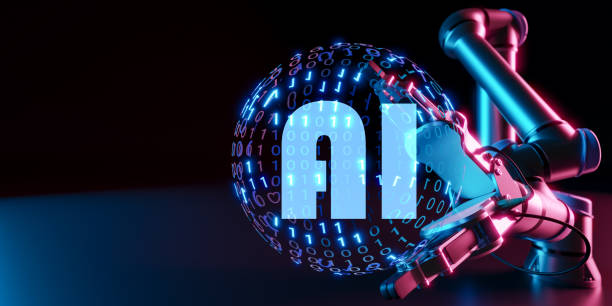
Governments have an important role to play in shaping the future of AI employment.
They can implement policies and regulations that maximize the benefits of AI and mitigate its potential risks.
This includes investing in education and training, creating ethical and social standards, and providing safety nets for workers affected by automation.
Governments can help workers prepare for the future of AI employment by investing in education and training.
This includes providing relevant curricula and courses, new ways of learning and developing skills, and collaborating with industry to ensure that students have the skills and knowledge that employers need.
Governments can also reduce the potential risks of AI by creating ethical and social standards for AI development and deployment.
This includes ensuring that AI algorithms are fair and impartial, are accountable, and protect data privacy and security.
The **future of AI employment** can be affected by government policies.
In addition, governments can provide safety nets for workers affected by automation.
This includes providing unemployment benefits, retraining programs, and support for entrepreneurship.
By supporting workers affected by automation, governments can help reduce the negative effects of automation on the job market and society.
In addition, governments can promote innovation and investment in AI.
This includes providing funding for research and development, creating incentives for companies to invest in AI, and supporting the development of an AI ecosystem.
By promoting innovation and investment, governments can help create new job opportunities and economic growth.
In summary, governments have an important role to play in shaping the future of AI employment.
They can implement policies and regulations that maximize the benefits of AI and mitigate its potential risks.
This includes investing in education and training, creating ethical and social standards, providing safety nets for workers affected by automation, and promoting innovation and investment.
By playing an active role, governments can ensure that AI benefits everyone and contributes to creating a thriving and fair job market.
The future of AI employment depends on the role of governments.
Are you worried that your company’s old website is scaring away new customers? Rasaweb solves this problem by designing a modern and efficient corporate website.
✅ Increases your brand’s credibility.
✅ Helps attract targeted customers.
⚡ Contact Rasaweb for a free consultation!
Strategies for Preparing for the Future of AI Employment

As AI becomes increasingly integrated into various industries, it is important to prepare for the future of AI employment.
This includes developing the right skills, staying up-to-date with the latest trends and technologies, and building a strong network.
In this section, we explore strategies that can help individuals prepare for the future of AI employment.
One of the most important strategies is to develop the right skills.
This includes learning the basic concepts and principles of AI, as well as acquiring the technical and non-technical skills needed to work in the field of AI.
Individuals can develop their skills by taking online courses and programs, participating in coding boot camps, and joining AI communities.
**The future of AI employment** requires preparation.
Another important strategy is to stay up-to-date with the latest trends and technologies.
The field of AI is rapidly evolving, and new technologies and techniques are constantly emerging.
To stay competitive, individuals must be eager to learn new skills, stay up-to-date with the latest developments, and adapt to changing environments.
They can do this by reading industry publications, attending conferences and webinars, and following thought leaders on social media.
In addition, building a strong network can help individuals find job opportunities and learn from other professionals.
Individuals can build their network by attending industry events, joining professional organizations, and connecting with individuals on LinkedIn.
Networking can provide valuable insights into job opportunities, access to resources and guidance, and help individuals connect with peers and industry leaders.
The future of AI employment requires networking.
In addition, individuals should actively seek opportunities to gain practical experience in the field of AI.
This can be done through internships, volunteer projects, or side projects.
Gaining practical experience can help individuals develop their skills, build their network, and demonstrate to potential employers that they are committed to AI.
Future Predictions and Key Trends in the Future of AI Employment
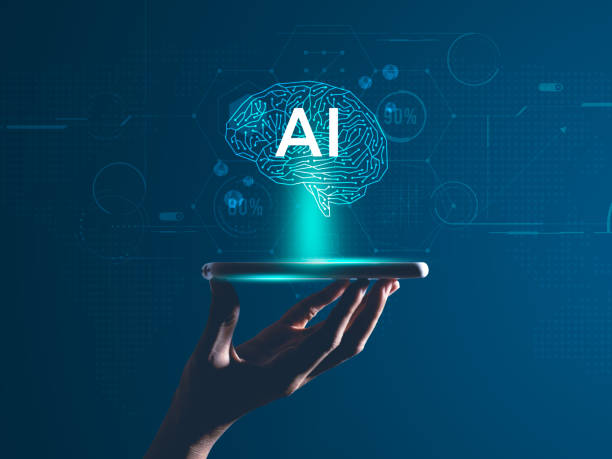
The future of AI employment is being shaped by a number of key trends.
These trends include increasing automation, the development of more advanced AI algorithms, and increasing integration of AI in various industries.
Increasing #automation is likely to have a significant impact on the job market.
As AI becomes more capable, it can automate many tasks that are traditionally performed by humans.
This can lead to job losses in some industries, but also create new opportunities in other industries.
Workers must prepare for this change by developing new skills and adapting to changing circumstances. The future of AI employment is tied to automation.
The development of more advanced AI algorithms will also have a significant impact on the job market.
As AI algorithms become more capable, they can perform more complex tasks and make more informed decisions.
This can lead to increased productivity, improved quality, and innovation.
However, it can also lead to the need for more skilled workers who can work with and manage these algorithms.
The increasing integration of AI into various industries will also have a significant impact on the job market.
As AI becomes increasingly integrated into various industries, it creates new opportunities for companies to improve efficiency, reduce costs, and offer new products and services.
This can lead to an increased demand for skilled workers who can design, develop, implement, and manage AI systems.
**The future of AI employment** is widespread across all industries.
In addition, there are a number of other trends that are likely to shape the future of AI employment.
These trends include increasing data importance, the development of explainable AI, and increasing focus on AI ethics.
FAQ
| Question | Answer |
|---|---|
| What impact will AI have on the future job market? | AI automates repetitive jobs but also creates new and more complex jobs in areas such as development, maintenance, and training of AI systems. |
| Which jobs are most at risk of being replaced by AI? | Jobs that involve repetitive, rule-based tasks with low creativity or emotional intelligence, such as some manufacturing, data entry, and simple customer service jobs, are most at risk. |
| What skills are essential to succeed in the future job market with the presence of AI? | Skills such as critical thinking, complex problem-solving, creativity, emotional intelligence, data literacy, ability to work with AI, and lifelong learning are highly important. |
| Will AI cause widespread unemployment? | Some jobs will be lost, but history has shown that new technologies, rather than causing widespread unemployment, reshape the job market and create new jobs. The need for adaptation and retraining is important. |
| What new job opportunities will emerge with the rise of AI? | Jobs such as Machine Learning Engineer, Data Scientist, AI ethicist, Human-AI Interaction Designer, and Digital Transformation Consultant are among the new opportunities. |
| What is the role of education in preparing for a future career with AI? | Education should focus on developing soft skills, computational thinking, digital literacy, and the ability to learn continuously to prepare individuals for future changes. |
| How can I prepare myself for the job market changes caused by AI? | You can prepare yourself by learning new skills related to AI and data, strengthening soft skills, developing critical thinking and creativity, and getting into the habit of lifelong learning. |
| Will AI ethics become an important job field? | Yes, given increasing concerns about biases, privacy, and automated decision-making of AI, the role of AI ethics professionals to ensure its responsible development will become very crucial. |
| What is the importance of human-AI collaboration in the future career? | Human-AI collaboration rather than competition shapes the future of the job market. AI can be a tool to increase productivity and focus humans on more complex and creative tasks. |
| Which industries will be most affected by AI? | Almost all industries will be affected, but areas such as healthcare, finance, transportation, manufacturing, education, and customer service are pioneers in adoption and transformation by AI. |
And other services of Rasa Web Advertising Agency in the field of advertising
Intelligent Direct Marketing: A combination of creativity and technology to manage campaigns by optimizing key pages.
Smart Sales Automation: Professional optimization to increase click-through rate using key page optimization.
Intelligent Direct Marketing: Transform online growth with the help of marketing automation.
Smart Website Development: A professional solution to attract customers with a focus on using real data.
Smart SEO: An effective tool to increase sales by using real data.
And more than hundreds of other services in the field of internet advertising, advertising consulting and organizational solutions
Internet Advertising | Advertising Strategy | Advertorial
Resources
What is Analytical AI?
,The Difference Between Analytical AI and Operational AI.
,What is Analytics?
,What are Analytical Skills and What are They Used For?
? Are you ready to transform your business in the digital world? Rasaweb Digital Marketing Agency, with expertise in SEO, content marketing, social media management, and personal website design, smooths your path to growth. Contact our experts today to boost your business.
📍 Tehran, Mirdamad Street, next to the Central Bank, South Kazerun Alley, Ramin Alley No. 6


